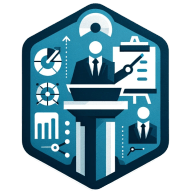3 Key Takeaways from Successful Employee Skill Development Programs
In today's rapidly evolving workplace, employee skill development has become a critical factor for organizational success. This article delves into the key takeaways from successful skill development programs, drawing insights from industry experts. Discover proven strategies to enhance your workforce's capabilities and drive your company's growth.
- Upskill Through Hands-On, Relevant Training
- Foster Growth with Authentic Feedback Loops
- Cultivate Expertise Through Mentorship and Practice
Upskill Through Hands-On, Relevant Training
One successful skill development program I implemented focused on upskilling our customer support team in advanced problem-solving and communication techniques. We created a series of interactive workshops combined with real-time coaching sessions over three months. What made it successful was the mix of practical exercises and immediate feedback, which helped employees apply new skills directly to their daily tasks. We tracked progress through customer satisfaction scores and saw a 20% improvement within six months. The key takeaway is that development programs must be hands-on and closely tied to real work challenges—learning sticks best when employees see immediate relevance and support. It's not enough to offer training; you have to embed it into everyday practice for lasting impact.

Foster Growth with Authentic Feedback Loops
One program that stands out was initiated during a phase when Spectup was scaling rapidly. We noticed that while our team was strong on technical delivery, there was a gap in investor-facing communication—especially when it came to helping clients prepare for challenging funding conversations. As a result, we developed an internal micro-coaching series, pairing team members with senior consultants for live pitch simulations. The idea was to immerse them in realistic, slightly uncomfortable investor scenarios and then debrief after each session.
What made it effective wasn't the structure—it was the feedback loop. We kept it authentic and personal. One of our team members once completely froze during a simulated call. We didn't sugarcoat it, but we also didn't criticize them harshly. Instead, we analyzed it together, and within three weeks, that same person was independently leading client preparation calls. This created a culture where making mistakes was viewed as part of the learning process, not a sign of failure.
The biggest takeaway? Professional development doesn't require a 50-slide deck or a fancy Learning Management System (LMS). If you create a safe environment for people to make mistakes and then reflect on them, they grow faster than any certificate can promise.

Cultivate Expertise Through Mentorship and Practice
One successful employee skill development program I implemented was a structured hands-on training and mentoring system for new team members focused on plant identification, seasonal care techniques, and customer communication. I designed the program based on gaps I noticed over the years working in the industry, where many workers knew how to use tools but lacked deeper horticultural understanding or confidence in dealing with clients. Drawing on my 15 years of experience and my qualifications as a certified horticulturist, I created a rotating weekly focus covering everything from soil preparation to pest management. I paired each new staff member with a more experienced gardener on the team, and I personally reviewed progress weekly, offering direct coaching on everything from pruning techniques to explaining plant choices to clients. This created a strong feedback loop and ensured each worker was supported while gaining real on-the-job knowledge.
The program was a success because it balanced practical skill-building with the theory behind good gardening. Within three months, we saw a measurable increase in job quality, and more importantly, clients began commenting on how knowledgeable and professional the whole team was. The biggest takeaway for me is that good training doesn't come from just handing someone a shovel and showing them what to do. It comes from fostering an environment where learning is ongoing, backed by real knowledge and mentorship. That depth of guidance only came from years of being on the tools myself, understanding not just how but why things are done in the garden.


